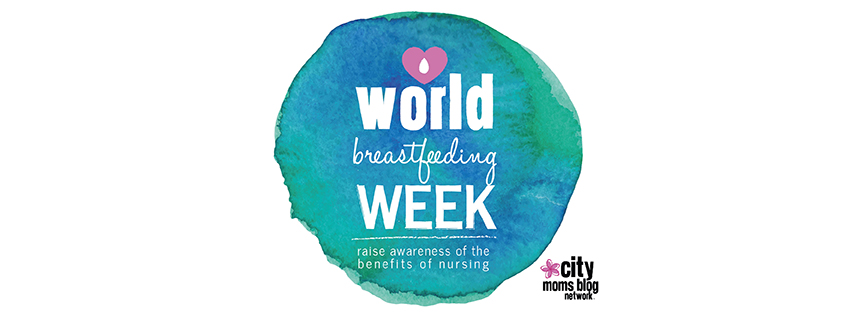 It isn’t any secret how important breastfeeding is to the health and well being of children in our country. The more research that is done on breast milk, the more convincing it is that this stuff is liquid gold. Even a few drops daily supply the highest quality nutrition and an immune boost that is just not found in any other man-made or natural food source. The World Health Organization recommends exclusive breastfeeding until 6 months of age and continuing until the child is 2 years old or older. Yet, even though 83% of American babies start out breastfeeding, only around 55% are still breastfeeding at 6 months and less than 25% exclusively breastfeeding.
It isn’t any secret how important breastfeeding is to the health and well being of children in our country. The more research that is done on breast milk, the more convincing it is that this stuff is liquid gold. Even a few drops daily supply the highest quality nutrition and an immune boost that is just not found in any other man-made or natural food source. The World Health Organization recommends exclusive breastfeeding until 6 months of age and continuing until the child is 2 years old or older. Yet, even though 83% of American babies start out breastfeeding, only around 55% are still breastfeeding at 6 months and less than 25% exclusively breastfeeding. 
But, why is this? What are the contributing factors? It seems that every woman I talk to who has young children is either breastfeeding or has a story of why breastfeeding did not work out. Some could not make enough milk, others had terrible pain, still others were told by their doctors to stop breastfeeding for anything from poor sleep to gastric reflux. With so many stories, it is difficult to sift through what barriers to breastfeeding in our country are insurmountable and which are small obstructions that can be overcome with a little education and the right support system. So, I’ve come up with a list of barriers to breastfeeding that may not be common knowledge but play a huge part in reducing statistical success rates of breastfeeding among American women.
Birth practices that are not baby friendly: In order for breastfeeding to get started out on the right foot, breastfeeding needs to be initiated in the first hour of life. While this is not always possible with birth complications, far too many perfectly healthy babies are taken away from their mothers for routine vitals, exam, baths etc within that first magical hour after birth when the best practice is to put baby on mom’s chest skin to skin and let the establishment of a breastfeeding relationship happen.
Tongue Tie: Many women experience extreme pain with breastfeeding and sometimes extensive nipple damage. While this can be due to poor latch, a tongue tie can also play a part in how well the baby is able to latch and how efficiently he feeds at the breast. Tongue ties can be anterior or posterior and are best diagnosed and treated by a specialist who also has breastfeeding training. Breastfeeding should not be painful and if it is, there is a reason for it, a reason that can likely be corrected. Correcting a tongue tie can also be imperative in order to help keep mom’s milk supply up because a tied tongue does not efficiently drain the breast. And without efficient draining of the breast, a mother’s body does not get the message to make more milk.
Insufficient Glandular Tissue (IGT): Some women do not fully develop their breast tissue. This leads to an inability to produce a full milk supply. While this is a small percentage of the overall population, there is some link between women with polycystic ovaries (PCOS) and this condition. IGT is not a hopeless situation though. Many women with the use of supplements and frequent pumping can make at least a partial milk supply, with some women being more successful with each subsequent baby they nurse.
Gastric Problems in Baby: Babies are born with an immature gastric system. Breast milk helps develop the gut which over time contributes greatly to a baby’s ability to fight infection. Breast milk is so vital to gut health that even the introduction of formula into the intestines of premature babies greatly increases their risk of developing necrotizing enterocolitis, an often fatal disease among premies that can be prevented by introducing breast milk exclusively. But, many mothers are told that their milk is making their baby spit up or be excessively fussy. While mom may be eating something that is not agreeing with baby, this likely can be discovered and remedied if mom takes one food at a time out of her diet that may be irritating baby for at least three weeks. An untreated tongue tie can lead to many of the symptoms of gastric reflux as well.
Contraceptive Measures: All birth control pills (yes, even the mini pill), contraceptive implants, and IUDs (even those that do not contain hormones) can drop milk supply, sometimes taking mom’s milk away completely. I’ve seen this is practice too many times to count. With so many well researched methods of natural family planning out there, the best thing to do in order to promote breastfeeding is to stay away from contraceptives.
 Where and How Baby Sleeps: The American Academy of Pediatrics recommends baby room in with parents for the first 12 months of life. This promotes breastfeeding and reduces risk of SIDS. However a few other things should be done as well. Baby should not be swaddled. Swaddling can cause a baby to sleep too deeply such that they do not wake up for feeds. In the first 6 months of life baby should be waking frequently to feed. This is normal. Long stretches of sleep for an exclusively breastfed baby often lead to poor weight gain and poor supply for mom. Check out this link: https://kellymom.com/parenting/nighttime/sleepstudies/ for more information.
Where and How Baby Sleeps: The American Academy of Pediatrics recommends baby room in with parents for the first 12 months of life. This promotes breastfeeding and reduces risk of SIDS. However a few other things should be done as well. Baby should not be swaddled. Swaddling can cause a baby to sleep too deeply such that they do not wake up for feeds. In the first 6 months of life baby should be waking frequently to feed. This is normal. Long stretches of sleep for an exclusively breastfed baby often lead to poor weight gain and poor supply for mom. Check out this link: https://kellymom.com/parenting/nighttime/sleepstudies/ for more information.
Infection: Many women stop breastfeeding because they develop thrush or a breast infection. These infections often begin with nipple damage from a bad latch or tongue tie. Seeking early medical attention is crucial so that nipple damage does not become a huge problem. But, with the right guidance, right diagnosis and consistent draining of the breast, infection should not end a breastfeeding relationship.
If you or any mother you know is thinking about breastfeeding, check out a good support group like Le Leche League (http://www.lllstl.org/). There are answers and people to help you.
Sources:
http://www.who.int/features/factfiles/breastfeeding/facts/en/
https://www.cdc.gov/breastfeeding/data/nis_data/results.html
https://kellymom.com/bf/got-milk/supply-worries/insufficient-glandular-tissue/
https://www.ncbi.nlm.nih.gov/pmc/articles/PMC4025624/
http://pediatrics.aappublications.org/content/early/2016/05/05/peds.2015-3275










